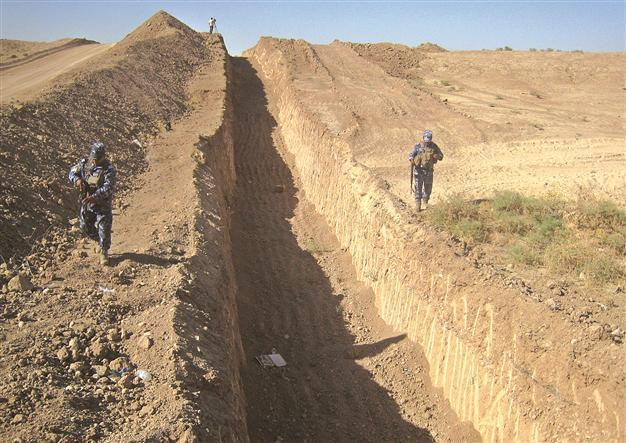Iraq signs deal with BP to revive northern oilfield
SEOUL/LONDON - Reuters

Central Iraqi government’s Kirkuk deal may iritate Kurdish government. AP photo
Baghdad signed a deal in early September for BP to revive Iraq’s northern Kirkuk oilfield, Oil Minister Abdul Kareem Luaibi said on Sept. 11, confirming a plan that the KRG has already rejected as illegal.The agreement allows the British oil major - which already operates Iraq’s biggest oilfield, Rumaila - to negotiate access to significant reserves in the north in return for helping Baghdad arrest a huge decline in output from Kirkuk.
“We signed a letter of intent about 10 days ago,” Luaibi told Reuters on the sidelines of an energy ministers’ meeting in Korea.
Reuters reported at the end of August that BP would work on the Baghdad-administered side of the border with Kurdistan, while the Iraqi Kurdish KAR group is developing a formation under the control of the Kurdistan Regional Government (KRG).
“We are pleased with this agreement,” a BP spokesman said. The deal faces opposition from the KRG, however, which rejected the planned pact as illegal when Baghdad revealed the preliminary arrangement with BP in January.
“The KRG’s position on this issue remains unchanged,” a spokesman from the KRG’s Ministry of Natural Resources said yesterday in response to the BP deal.
“No company will be permitted to work in any part of the disputed territories including Kirkuk without formal approval and involvement of the KRG.”
Re-developing Kirkuk is part of a wider push by Baghdad to rescue Iraq’s oil sector from decades of war and neglect. Oil provides the lion’s share of Iraq’s government revenues and foreign exchange earnings and the authorities have set a production target of 3.4 million barrels per day (bpd) for end-2013.
The increasingly influential OPEC member is currently producing 3.25 million bpd, Luaibi told reporters ahead of an Asian oil ministers meeting in Seoul. Iraq hopes to add 175,000 bpd of capacity later this month with the start up of the Royal Dutch Shell-operated Majnoon field.
Luaibi said Majnoon was expected to start a 10-day test production phase on Sept. 20, after which the field was expected to ramp up towards full production.
Work since 2010 at Iraq’s southern oilfields by the likes of BP, Exxon Mobil and Eni raised output by 600,000 bpd to 2.9 million bpd in 2012, turning Iraq into the world’s fastest growing exporter.
Iraq is currently exporting 2.5 million bpd, said Luaibi, compared to an average of 2.58 million bpd in August.
















